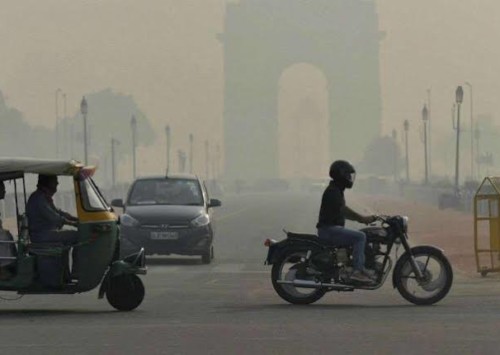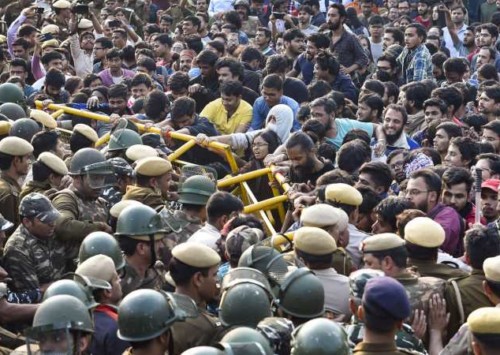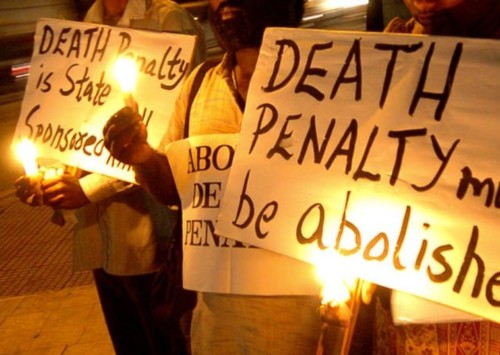Coronavirus in Kashmir: Lockdown amidst shutdown
Even though international organisations like RSF and Amnesty International have called the internet shutdown in J&K a ‘potentially criminal’ move during a pandemic, the Indian government continues to keep internet and mobile data communications out of the reach of the residents of Kashmir Valley.
As the world unanimously stands against the coronavirus pandemic by remaining indoors under a strict lockdown, the internet has turned out to be a true saviour for not just communication of necessary information and essential advisories but also the state of affairs of the public. However, the suspension of high-speed 4G network services in the union territory of Jammu and Kashmir (J&K) since early August last year has proved itself to be a major hurdle even as the Covid-19 virus spreads in the region. The situation is deemed to be so serious that international organisations like Reporters without Borders (RSF), have termed it as ‘potentially criminal’.
RSF, an international non-profit NGO that promotes free, independent and pluralistic journalism, has called upon the Indian government to immediately restore high-speed (4G) Internet in the Kashmir Valley, where the existing restrictions on communications are potentially criminal during the Covid-19 pandemic.
“Imagine a population under a coronavirus lockdown that cannot communicate by internet,” said Daniel Bastard, the head of RSF’s Asia-Pacific desk. “This is the cruel reality to which the citizens of the Kashmir Valley, including its journalists, are currently being subjected to,” Bastard added.
“At a time when people under lockdown all over the world are using the Internet to work, communicate and get information, the 8 million Kashmiris continue to be cut off from the absolutely vital information that is needed to prevent the spread of the pandemic. As this demonstrates potentially criminal irresponsibility, New Delhi must immediately restore high-speed Internet in the Kashmir Valley,” he said.
“In these tough times when the world is facing and fighting Covid-19, people in Kashmir are alongside fighting for the restoration of high-speed internet, but all we hear are deadlines that add to the sufferings of people,” Mir Umar, a student hailing from Baramulla tells Media India Group.
On March 18, Kashmir had reported its first Covid-19 patient following which, the government ordered the people to stay indoors under strict restrictions. The count has now risen to 14 with the death of one 65-year-old returnee from Saudi Arabia. The lockdown brought even more misery into the lives of the seven million residents of the valley, who are yet to emerge from the uncertainty and complete shutdown of the state since the past seven months.
“There is a growing anxiety around the pandemic and unwarranted restrictions on content and dissemination of information only stands to add to the panic. Complete shutdowns or restricting of internet speed or access makes it difficult for people to navigate their way through a difficult time further undermining their trust in the authorities. The Government of India needs to adopt a rights-respecting approach to protect public health and restore access to 4G speed internet,” said Avinash Kumar, Executive Director, Amnesty International India.
The plight of the valley
The world capital of internet shutdowns, India has been widely denounced for its communication blackout in (J&K) since August 5 last year, where mobile phone networks were suspended along with an internet shutdown that lasted for many months altogether and still continues to be limited to the second generation (2G) network.
Since the coronavirus is new to the human race, the need for doctors to be constantly updated on the advancements about the virus is of utmost importance. While the Prime Minister of the country calls upon the nation to thank its doctors among other medical professionals, health and sanitation workers, the Kashmiri doctors face an isolated battle in the absence of basic modern communication solution apart from the general lack of face masks or other protective gear in hospitals.
The student community also suffers its own manner as the students had properly returned to their educational institutions after more than six months of lockdown but, were once again shut inside their houses, only this time along with all other students from India. Despite this commonness, while the students of rest of the country continue to move forward in the curriculum with online classes, the students of the valley are unable to do so due to the low-speed internet connections imposed by the government.
In these dire times the Kashmiri population is taken far away from keeping themselves aware of the new precautionary measures. Majid Hyderi, a journalist tells media that depriving Kashmiris of high-speed Internet was “like siding with the coronavirus.” She added: “Not only is working from home, not an option but people in Kashmir cannot even watch WHO video clips on coronavirus awareness.”













